
Vladimir Nabokov
Autor: Alan Levy
Número de Páginas: 217The Velvet Butterfly is the third in a series of introductions to some of our major literary figures by the noted cultural journalist and foreign correspondent Alan Levy.

The Velvet Butterfly is the third in a series of introductions to some of our major literary figures by the noted cultural journalist and foreign correspondent Alan Levy.
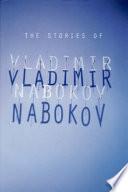
Here, for the first time, are 65 stories--13 of which have never before been published in book form--by one of the 20th century's great prose stylists collected in one elegant volume. Written from the early 1920s to the mid-1950s, these stories will remind readers that they are in the company of a great original, a literary master. Edited by his son and translator.
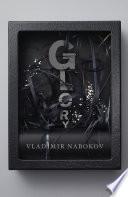
Glory is the wryly ironic story of Martin Edelweiss, a twenty-two-year-old Russian émigré of no account, who is in love with a girl who refuses to marry him. "The themes we associate with Nabokov — the romance of emigres, sexual frustration, the nostalgia of youth — shine again, sorrowfully or blithely, but always adding an illuminating dimension to what went before or what comes after." -Kirkus Reviews Convinced that his life is about to be wasted and hoping to impress his love, Martin embarks on a "perilous, daredevil project"--an illegal attempt to re-enter the Soviet Union, from which he and his mother had fled in 1919. He succeeds--but at a terrible cost.
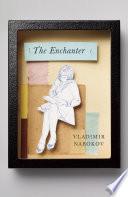
The Enchanter is the Ur-Lolita, the precursor to Nabokov's classic novel. At once hilarious and chilling, it tells the story of an outwardly respectable man and his fatal obsession with certain pubescent girls, whose coltish grace and subconscious coquetry reveal, to his mind, a special bud on the verge of bloom.


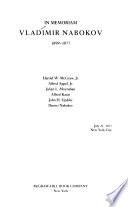
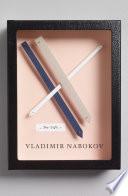
Fyodor Godunov-Cherdyntsev, an impoverished poet, seeks fame in the phantasmic world of Berlin in the 1920's.
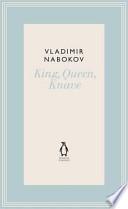
Of all my novels this bright brute is the gayest', Nabokov wrote of King, Queen, Knave. Comic, sensual and cerebral, it dramatizes an Oedipal love triangle, a tragi-comedy of husband, wife and lover, through Dreyer the rich businessman, his ripe-lipped and mercenary wife Martha, and their bespectacled nephew Franz. 'If a resolute Freudian manages to slip in' - Nabokov darts a glance to the reader - 'he or she should be warned that a number of cruel traps have been set here and there . . .
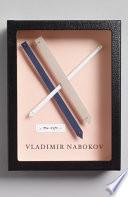
The Gift is the last of the novels Nabokov wrote in his native Russian and the crowning achievement of that period in his literary career. It is also his ode to Russian literature, evoking the works of Pushkin, Gogol, and others in the course of its narrative: the story of Fyodor Godunov-Cherdyntsev, an impoverished émigré poet living in Berlin, who dreams of the book he will someday write--a book very much like The Gift itself.
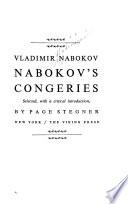
A collection of short stories, a novel and excerpts from longer fiction, poetry, essays, and an excerpt from the autobiography of writer Vladimir Nabokov.
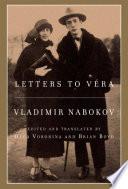
"A collection of letters between Vladimir Nabokov and his wife, Vera"--
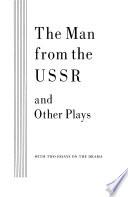
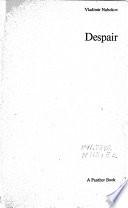

Here, for the first time, are 65 stories--13 of which have never before been published in book form--by one of the 20th century's great prose stylists collected in one elegant volume. Written from the early 1920s to the mid-1950s, these stories will remind readers that they are in the company of a great original, a literary master. Edited by his son and translator.
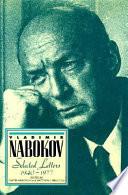
Vladimir Nabokov's rise from impoverished World War II refugee to literary giant is recorded in this volume of more than 400 letters. Opening with an eloquent introduction by Vladimir's son, Dmitri, the volume is illustrated with more than 40 photographs, facsimiles and butterfly drawings.

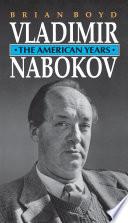
The story of Nabokov's life continues with his arrival in the United States in 1940. He found that supporting himself and his family was not easy--until the astonishing success of Lolita catapulted him to world fame and financial security.
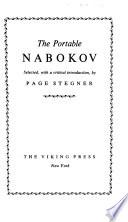

Albinus, a respectable, middle-aged man and aspiring filmmaker, abandons his wife for a lover half his age: Margot, who wants to become a movie star herself. When Albinus introduces her to Rex, an American movie producer, disaster ensues. What emerges is an elegantly sardonic and irresistibly ironic novel of desire, deceit, and deception, a curious romance set in the film world of Berlin in the 1930s.
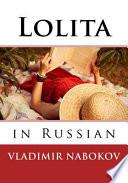
This book is published in Russian. "Lolita" - a novel by Vladimir Nabokov. Written in English, published in 1955 in the Parisian publishing house "Olympia Press," then, in the second half of the 1960s, the author translated into Russian. It is considered one of the most outstanding books of XX century: it is called the fourth in the list of the hundred best novels of all time according to The Modern Library, and hit the list of the hundred best novels of the century, according to the magazine Time. Humbert Humbert, one of the most famous heroes of the VV Nabokov, obsessed with passion for Dolores Haze schoolgirl that he be named Lolita. The girl seems to him the earthly incarnation of the first lover, who died in adolescence Anabella Lee. "Eternal Love" and the thirst for possession pushes Humbert on crime: to be inseparable with Lolita, he provokes the death of her mother and posing as foster father of the girl starts with her on a perilous journey ...
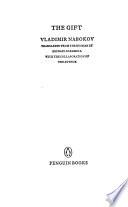
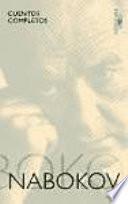
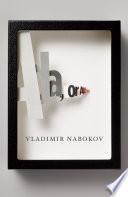
Published two weeks after his seventieth birthday, Ada, or Ardor is one of Nabokov's greatest masterpieces, the glorious culmination of his career as a novelist. It tells a love story troubled by incest. It is also at once a fairy tale, epic, philosophical treatise on the nature of time, parody of the history of the novel, and erotic catalogue. Ada, or Ardor is no less than the supreme work of an imagination at white heat. This is the first American edition to include the extensive and ingeniously sardonic appendix by the author, written under the anagrammatic pseudonym Vivian Darkbloom.


Reading versions of important lectures given in the 1950s demonstrate Nabokov's critical talents and reveal his judgments on the works and achievement of Austen, Dickens, Flaubert, Joyce, Kafka, Proust, and Stevenson

The Enchanter is the Ur-Lolita, the precursor to Nabokov's classic novel. At once hilarious and chilling, it tells the story of an outwardly respectable man and his fatal obsession with certain pubescent girls, whose coltish grace and subconscious coquetry reveal, to his mind, a special bud on the verge of bloom.
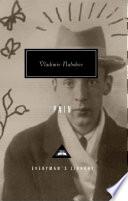
One of the best-loved of Nabokov’s novels, Pnin features his funniest and most heart-rending character. Professor Timofey Pnin is a haplessly disoriented Russian émigré precariously employed on an American college campus in the 1950s. Pnin struggles to maintain his dignity through a series of comic and sad misunder-standings, all the while falling victim both to subtle academic conspiracies and to the manipulations of a deliberately unreliable narrator. Initially an almost grotesquely comic figure, Pnin gradually grows in stature by contrast with those who laugh at him. Whether taking the wrong train to deliver a lecture in a language he has not mastered or throwing a faculty party during which he learns he is losing his job, the gently preposterous hero of this enchanting novel evokes the reader’s deepest protective instinct. Serialized in The New Yorker and published in book form in 1957, Pnin brought Nabokov both his first National Book Award nomination and hitherto unprecedented popularity.
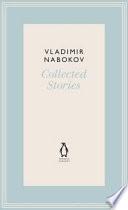
A man at his desk is interrupted by the appearance of a woodland elf in his room; the piano maestro Bachmann ends his career; a barber shaves the face of a man who once tortured him; a shy dreamer makes a deal with the Devil. In these sixty-five stories of magic and melancholy, Nabokov displays an astonishing range of inventiveness, with dazzling sleight of hand, fantastical fairy tales, intellectual games and enchanting glimpses into lives of ambiguity and loss.

Shortly before Vladimir Nabokov died in 1977, he left instructions that the draft for his last novel, The Original of Laura, be destroyed. But in 2008 Dmitri Nabokov, the writer's only child and sole surviving heir, contravened his father's wishes. Formed from novelistic fragments that had been hidden from the public eye for three decades, The Original of Laura is a construction based on the conjecture of the Nabokov estate, publishers, and scholars. Shades of Laura returns to the "scene of the crime," elucidating the process of publishing Nabokov's unfinished novel from its conception - the reproduction of 138 handwritten index cards - to the simultaneous publication of translations of the final text in several languages. The essays in this collection investigate the event of publication and reconstitute the book's critical reception, reproducing a selection of some of the most salient reviews. Critics condemned Dmitri's choice, but as contributors to this volume attest, there are many more "shades" and "nuances" to his decision. The book also endeavours to allow readers to understand and evaluate an incomplete novel; contributors analyze its plot, structure, imagery, and motifs. ...
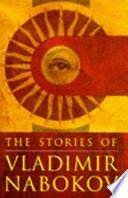
From one of the greatest prose stylists of our time,his complete short stories, including 13 hitherto unpublished,brought toghether for the first time.


"Literature and Lepidoptera dance an elaborate pas de deux through seventy years of Vladimir Nabokov's life, from his boyhood in Russia to his life as an emigre in the Crimea, Berlin, France, the United States, and finally in Switzerland. An American literary giant, Nabokov also produced first-rate work as a scientist, and in his fiction and elsewhere eloquently advocated attention to the details of the natural world and promoted the delights of discovery." "Nabokov's Butterflies presents Nabokov's twin passions through an astonishingly rich array of novel selections, stories, poems, screenplay, autobiography, criticism, lecturers, articles, reviews, interviews, letters, and notes, plus a wealth of beautiful and fanciful drawings by Nabokov and photographs of him in the field."--BOOK JACKET.Title Summary field provided by Blackwell North America, Inc. All Rights Reserved

In some of these stories shadowy people pass through, cooped up by life, mangled by it, with nowhere to escape to. Their dreams lie stifled, smothered by routine and repetition, and frustrations lurk in all the corners. In others, elusive glimpses of fleeting happiness, which flutter away before they can be snatched, waylay their victims. Like the shimmer of the sea, the gleam of a glass caught by the sun, they sparkle brilliantly only to dissolve again. Two of the stories, 'First Love' and 'Mademoiselle O', are autobiographical, and 'The Assistant Producer' is based on real events, but the rest are pure flights of fantasy - or the stuff that life is weaved of?

Nabokov's masterly Collected Poems span the decades of his career, from 'Music', written in 1914, to the short, playful 'To Vera', composed in 1974. 'The University Poem', one of Nabokov's major poetic works, is here in English for the first time: an extraordinary autobiographical poem looking back at his time at Cambridge, with its dinners, girls and memories, it is suffused with rich description, wit and verbal dexterity. Included too are the surreally comic 'A Literary Dinner', the enchanting, 'Eve', the wryly humorous 'An Evening of Russian Poetry' and a meditation on the act of creation, 'Tolstoy', as well as verse written on America, lepidoptery, sport, love and Nabokov's Russian homeland.

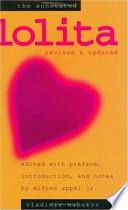
The novel which first established Nabokov's reputation with a large audience is a tour-de-force of comic satire on sex and the American way of life. It focuses on the love of a middle-aged European for an American nymphet. By the author of Laughter in the Dark, Pnin and Pale Fire.
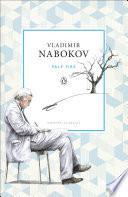
The famous American poet John Shade was murdered in 1959. This text contains his last poem, Pale Fire, together with a foreword by Shade's editor, Charles Kinbote.

Opciones de Descarga